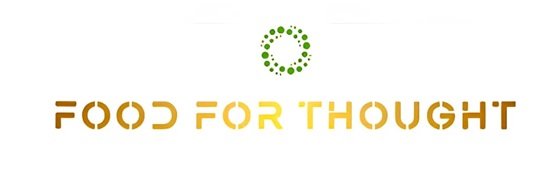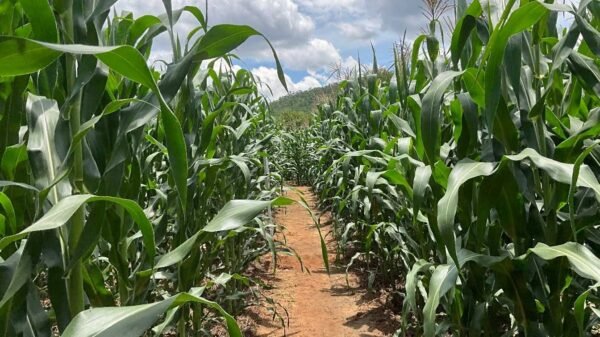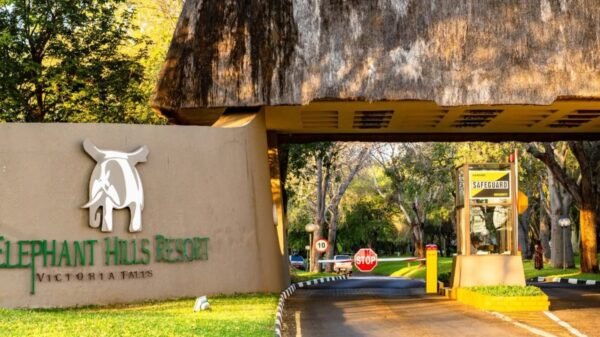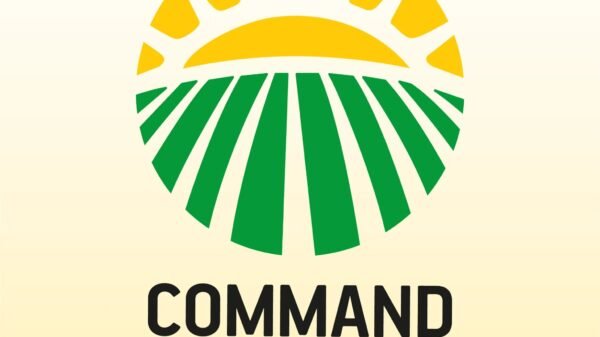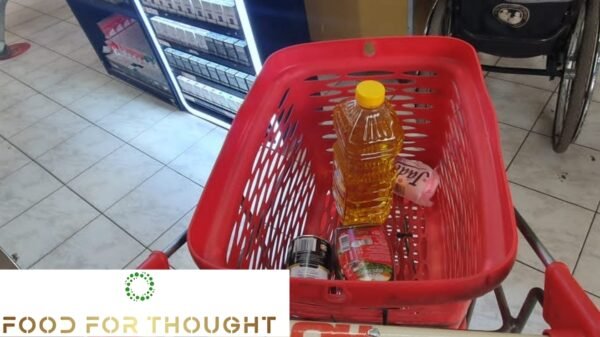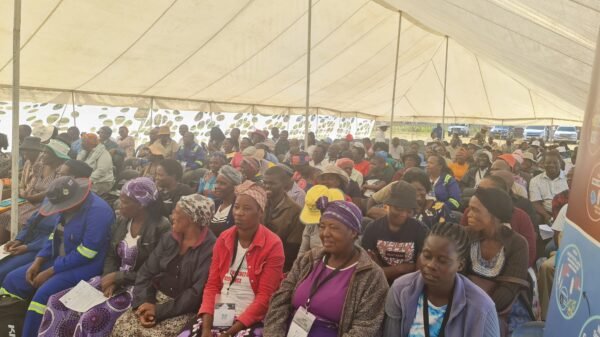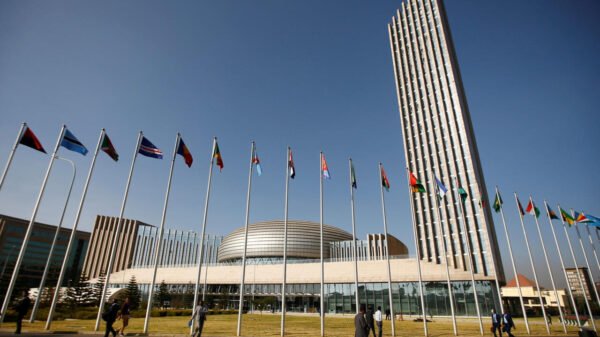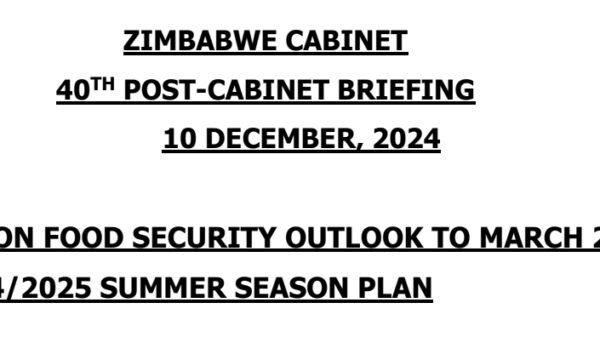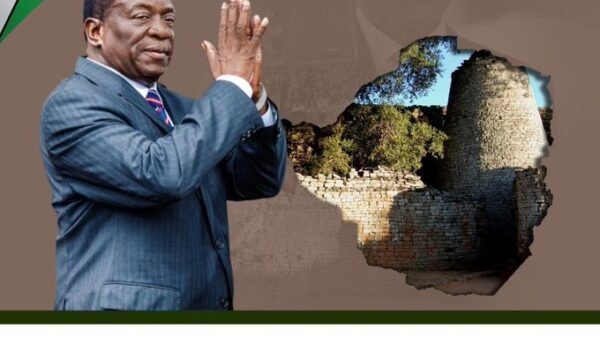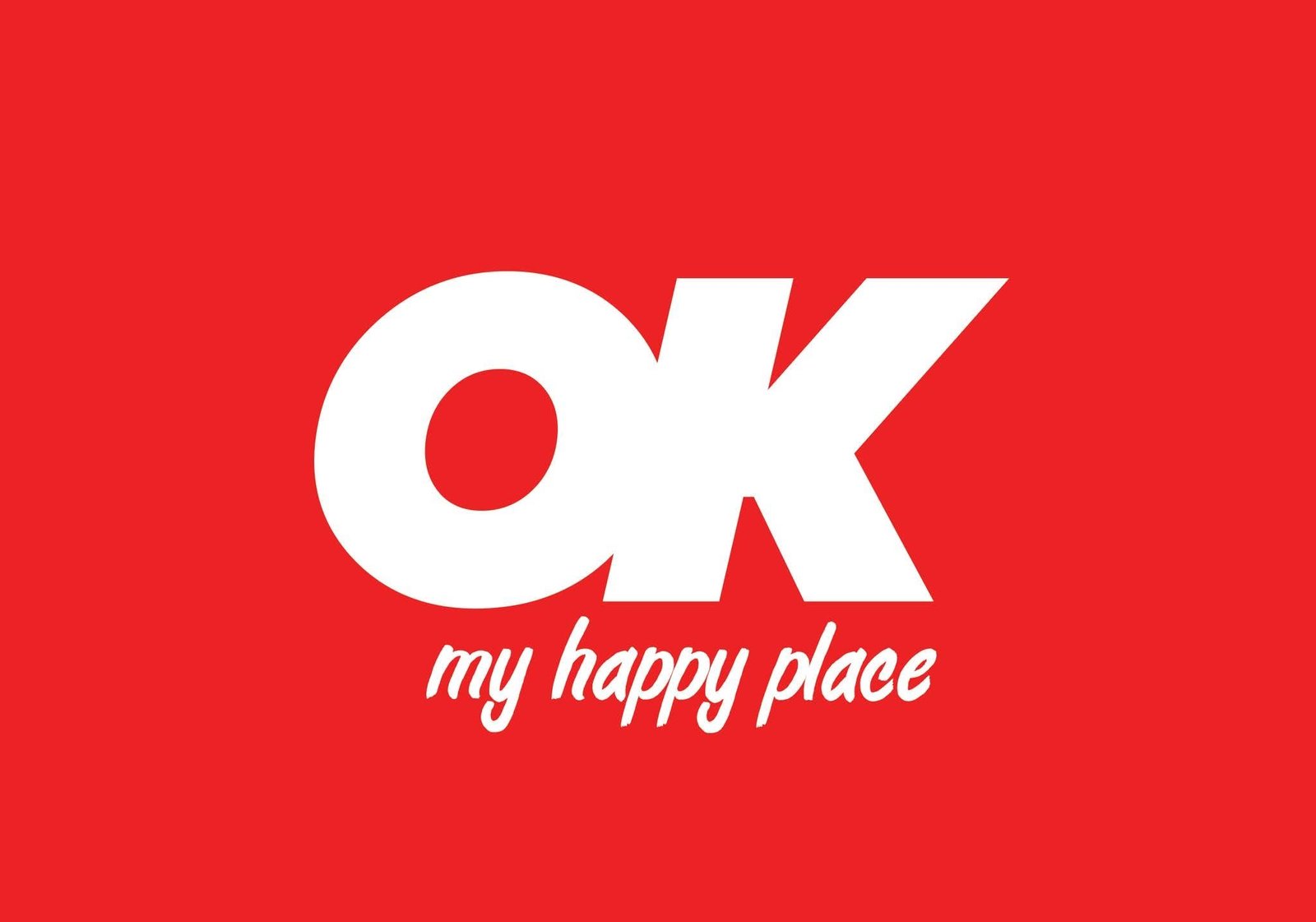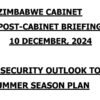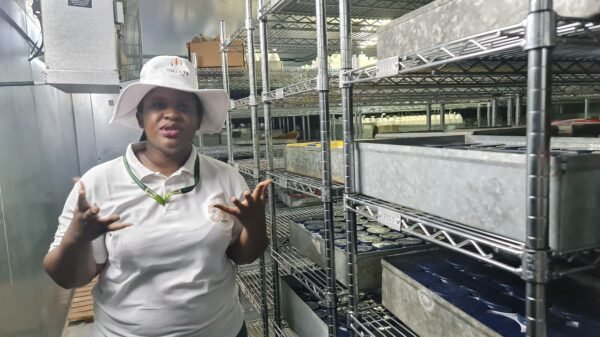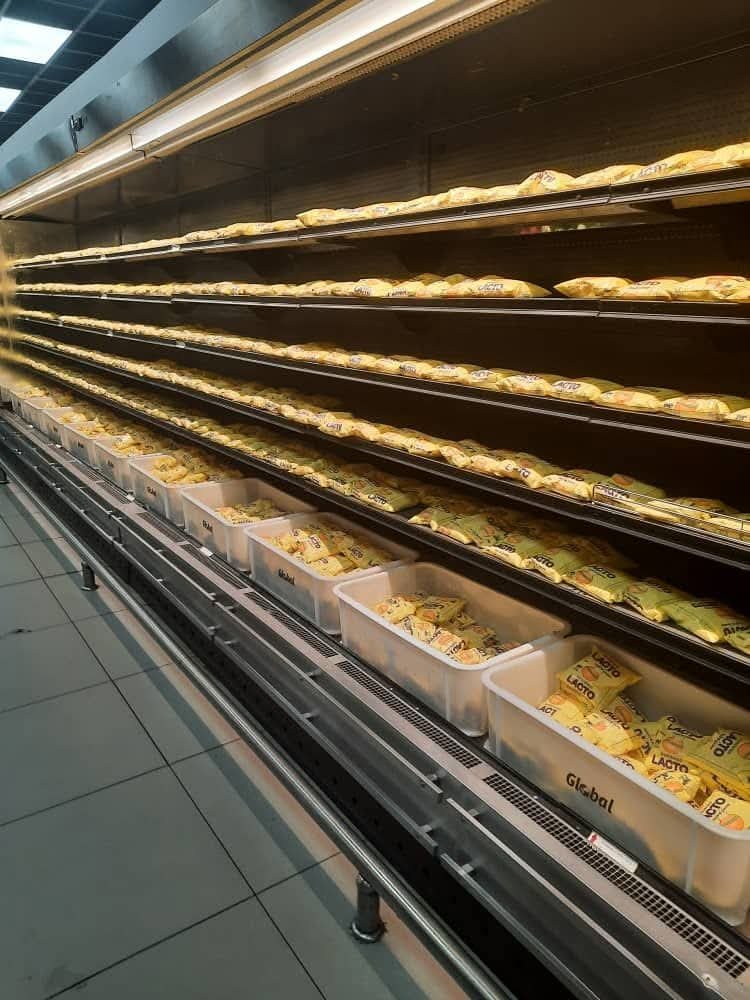
Nothing but Lacto…Shoppers are witnessing strange scenes in OK Zimbabwe’s supermarkets as the retail chain struggles to stock its shelves.
Staff Writer
AS the year 2025 kicks off, ominous storm clouds are gathering on the horizon, with listed supermarket chain and the country’s largest retailer OK Zimbabwe Limited scrambling to allay fears that the empty shelves in many of its shops indicate serious operational problems and could signal the imminent collapse of formal grocery outlets.
Since December, pictures and videos of empty supermarket shelves and fridges have gone viral, sparking concern that the failure to restock is one of the alarming symptoms of an economy whose underlying structural infirmities are spiralling out of control.

In a normal economy, supermarkets are important for food security because they increase access to nutritious food and help coordinate markets. They also play a role in shaping the development of food producers and processors.
A volatile mix of policy uncertainty and currency instability has unleashed chaos on an already fragile economy, pushing distressed companies to the edge.
OK Zimbabwe issued a statement on 10 January 2025 through company secretary Margaret Munyuru, denying the “frenzied and speculative commentary circulating on social media platforms regarding the viability and going concern status of OK Zimbabwe Limited”.
Far from calming nerves, the statement has left more questions than answers.
While Munyuru conceded that the company experienced “intermittent product supply challenges during the festive period”, she did not explain, convincingly, what caused the problems.
Tellingly, in the same statement, OK Zimbabwe admitted that the company “has been adversely impacted by a volatile operating environment”.

More questions than answers…With stockouts rocking the grocery chain during the festive season’s peak period, the public is asking whether the formal retail outlets can survive the rapid informalisation of an already volatile economy.
Unworkable policies unleash chaos
Three months ago, Zimbabwe’s largest grouping of retailers warned the government that businesses faced closure unless the authorities addressed the chaotic exchange rate policy and the unworkable pricing regime resulting from it.
The Retailers’ Association of Zimbabwe, whose members include major players like OK Zimbabwe, Pick n Pay, SPAR, and Edgars, said urgent intervention by the government was needed to avert the formal retail sector’s collapse.
To rescue the sector, the government should introduce a market-determined exchange rate to foster realistic pricing that does not throttle formal retailers. Formal businesses are being forced to set prices in the volatile Zimbabwe Gold (ZiG) local currency, and this makes it difficult for them to compete with informal traders who price their goods in the relatively stable US dollar.
What is more, the unregulated tuckshops are not burdened with tax obligations and onerous overheads. For instance, crippling electricity blackouts pushed up OK Zimbabwe’s energy bill in the half-year ending 30 September 2024 from US$5 million to US$8.2 million.
The economy is so broken that, for many businesses operating in Zimbabwe today, the biggest opportunity in 2025 can only be found in maximising the arbitrage presented by the US dollar-ZiG exchange rate disparities. Naked arbitrage — as well as tenderpreneurship — have emerged as key sources of profit for hard-pressed companies and wheeler-dealers scrambling for quick returns.
Rise of the informal economy
According to the International Labour Organisation, Zimbabwe has one of the largest informal economies in the world.
In major city centres, notably Harare and Bulawayo, many large companies have collapsed, and their space has been taken over by informal businesses. Prime buildings in the central business districts — formerly occupied by formal enterprises — have been sub-divided into flea-market-like stalls where largely unregulated trade is conducted. Curiously, these latter-day flea markets are glorified as “malls”, but in reality Zimbabwe’s economy is regressing from a proliferation of formal enterprises that pay tax, to a rag-tag agglomeration of unlicensed traders who operate outside the remit of organised trade and commerce.
In this emerging economic landscape, the tax burden is placed directly on the balance sheets of the ever-shrinking formal companies.
The transformation comes with a raft of challenges. Workers in the informal economy are highly vulnerable to poverty due to low earnings, irregular pay, eroded labour rights, as well as non-existent savings and pensions.
